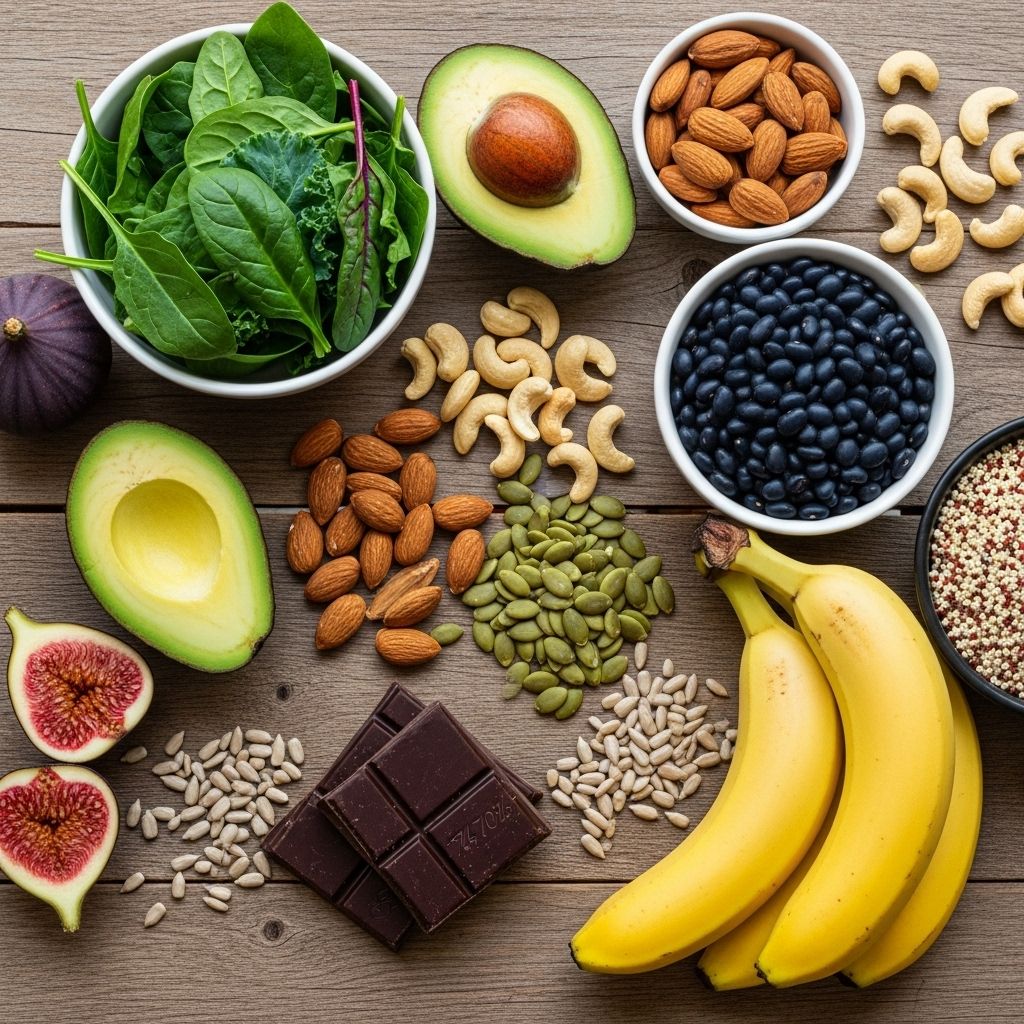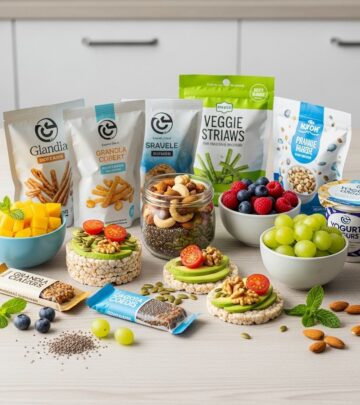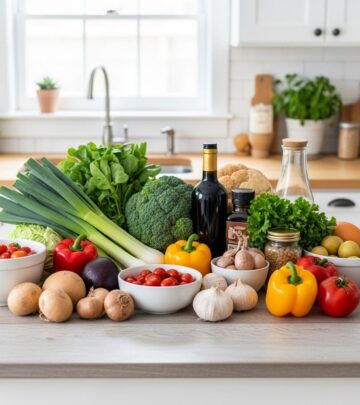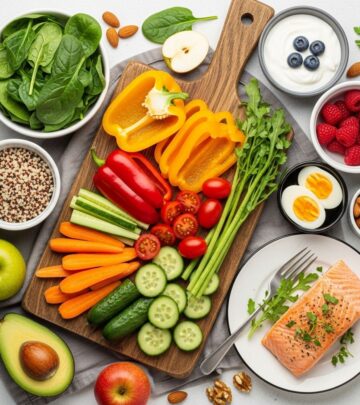25 Plant-Based Foods High in Magnesium (and Why You Need Them)
Fuel vitality with nutrient-packed bites that boost energy and support well-being.

Magnesium is a crucial mineral that powers over 300 enzymatic reactions in your body—from muscle and nerve function to energy metabolism, bone health, and immune support. But despite its essential role, many people don’t get enough magnesium in their diets, especially from plant-based sources.
This article explores why magnesium matters, the signs of deficiency, how much you need, and a detailed list of 25 plant-based foods high in magnesium. You’ll also find practical tips from registered dietitians and answers to frequently asked questions to help you boost your intake and maximize your health.
Table of Contents
- Why Magnesium Is Essential
- Signs You May Be Low in Magnesium
- Recommended Daily Intake
- 25 Plant-Based Foods Rich in Magnesium
- How to Incorporate Magnesium-Rich Foods
- Frequently Asked Questions
Why Magnesium Is Essential
Magnesium is an essential mineral your body needs for many biological functions, including:
- Regulating muscle and nerve function, helping with the contraction and relaxation of your muscles and the transmission of messages throughout your nervous system.
- Controlling blood pressure and supporting cardiovascular health.
- Stabilizing blood sugar levels by supporting insulin metabolism and glucose control.
- Protein synthesis, DNA, and RNA production.
- Energy production, as magnesium helps convert the food you eat into usable energy.
- Bone and tooth health, working alongside calcium and vitamin D.
Over the long term, inadequate magnesium intake may raise your risk of cardiovascular disease, type 2 diabetes, osteoporosis, and migraine headaches.
Signs You May Be Low in Magnesium
Despite its importance, research indicates that nearly half of all Americans may not meet their daily magnesium needs from food. Certain groups—such as older adults, individuals with gastrointestinal conditions, or those with type 2 diabetes—are at higher risk for deficiency.
Early signs of inadequate intake (known as magnesium inadequacy) are subtle and may not be immediately noticeable. If a true deficiency occurs, symptoms can intensify:
- Loss of appetite
- Nausea or vomiting
- Fatigue and weakness
- Tingling or numbness
- Muscle cramps or spasms
- Seizures (in severe cases)
- Personality or mood changes
Chronically low magnesium intakes may contribute to higher risk of illness over time, but severe clinical deficiency is rare for most healthy individuals.
How Much Magnesium Do You Need?
Your recommended daily magnesium intake depends on age, sex, and life stage:
| Group | Recommended Daily Intake (mg) |
|---|---|
| Adult men (19-30 years) | 400 |
| Adult women (19-30 years) | 310 |
| Men (31+ years) | 420 |
| Women (31+ years) | 320 |
| Pregnant women | 350-360 |
| Lactating women | 310-320 |
Your needs may be higher if you are pregnant, breastfeeding, elderly, or have certain health conditions. Consult your healthcare provider for personalized recommendations.
25 Plant-Based Foods Rich in Magnesium
Many plant-based foods are packed with magnesium as well as other crucial nutrients and antioxidants. Adding variety from the list below can help maximize your daily intake and overall health.
- Pumpkin Seeds
- One of the most concentrated sources: 156 mg per 1 ounce.
- Offer healthy fats, protein, and antioxidants.
- Chia Seeds
- 95 mg per 1 ounce.
- Packed with fiber and omega-3 fatty acids.
- Almonds
- 80 mg per 1 ounce (about 23 nuts).
- High in vitamin E, protein, and fiber.
- Spinach (cooked)
- 78.5 mg per 1/2 cup.
- Rich in vitamins A, C, and K, plus iron and antioxidants.
- Swiss Chard (cooked)
- 75 mg per 1/2 cup.
- Also high in vitamins K and A, fiber, and flavonoids.
- Black Beans (cooked)
- 60 mg per 1/2 cup.
- Excellent source of plant-based protein and fiber.
- Dark Chocolate (70-85% cocoa)
- 64 mg per 1 ounce.
- Loaded with antioxidants and provides a sweet magnesium boost.
- Peanut Butter
- 54 mg per 2 tablespoons.
- Source of protein, healthy unsaturated fats, and fiber.
- Soy Milk
- 50 mg per 1 cup.
- Fortified soy milk also delivers calcium and protein.
- Baked Potato (with skin)
- 43 mg per 3.5 ounce (small) potato.
- Offers vitamin C, potassium, and energy-supporting carbohydrates.
- Bananas
- 31.9 mg per medium banana.
- Also high in potassium, fiber, and vitamin C.
- Artichoke Hearts (boiled)
- 35.3 mg per 1/2 cup.
- Rich in folate (B9), vitamin C, fiber, and prebiotic compounds for gut health.
- Parsnips (boiled)
- 22.6 mg per 1/2 cup.
- Contain vitamin C, K, folate, and potassium, plus flavonoids and polyacetylenes with anti-inflammatory properties.
- Collard Greens (cooked with oil)
- 18.9 mg per 1/2 cup.
- Source of iron, fiber, vitamins A, C, K, and calcium.
- Potatoes (boiled, with skin)
- 17.2 mg per 1/2 cup.
- Resistant starch supports gut health and may lower diabetes risk.
- Kale (boiled)
- 14.75 mg per 1/2 cup.
- Nutrition superstar: vitamins A, B6, C, K, folate, fiber, carotenoids, manganese.
- Arugula (raw)
- 4.7 mg per 1/2 cup.
- Offers antioxidants and glucosinolates for potential cancer protection.
- Buckwheat (cooked)
- Contains about 65 mg per 1/2 cup cooked.
- Gluten-free whole grain supporting heart health.
- Quinoa (cooked)
- Roughly 60 mg per 1 cup cooked.
- High in plant-based protein, fiber, folate, and iron.
- Edamame (cooked)
- 50 mg per 1/2 cup.
- Provides protein and all essential amino acids.
- Lentils (cooked)
- 36 mg per 1/2 cup cooked.
- Rich in fiber, iron, B vitamins, and plant protein.
- Avocado
- Medium fruit: about 58 mg magnesium.
- Great source of healthy fats, fiber, and potassium.
- Cashews
- Roughly 74 mg per 1 ounce.
- Healthy unsaturated fats and protein.
- Oats (old-fashioned/steel cut)
- About 57 mg per 1/2 cup dry oats.
- Good for breakfast bowls, add seeds or nuts for extra magnesium.
- Brown Rice (cooked)
- 42 mg per 1 cup cooked.
- Whole grains provide sustained energy and fiber.
- Sunflower Seeds
- About 37 mg per 1 ounce.
- Snackable and easy to add to salads, yogurt, or cereal.
How to Incorporate Magnesium-Rich Foods
To boost your magnesium and enhance overall nutrition:
- Mix and match: Create grain bowls or salads with leafy greens, whole grains, beans, seeds, and a handful of nuts.
- Snack smart: Keep roasted pumpkin seeds, almonds, or dark chocolate for convenient snacks.
- Add seeds: Sprinkle chia or sunflower seeds over oatmeal, yogurt, or even baked goods.
- Swap grains: Choose quinoa, buckwheat, or brown rice instead of refined grains at meals.
- Try fortified options: Include fortified plant milks (like soy milk) to boost magnesium and calcium intake, especially if avoiding dairy.
- Rotate vegetables: Vary the leafy greens and magnesium-rich veggies in your cooking to keep things interesting and nutritious.
Building your meals this way not only boosts magnesium but also ensures you get a variety of vitamins, minerals, and antioxidants.
Frequently Asked Questions
Q: What are the top symptoms of low magnesium?
A: Early symptoms can be mild—loss of appetite, fatigue, muscle cramps, and nausea. In severe cases, tingling, mood changes, muscle spasms, or even seizures may occur.
Q: Can you get enough magnesium on a plant-based or vegan diet?
A: Yes. A plant-based diet can provide ample magnesium when you regularly eat seeds, nuts, leafy greens, beans, whole grains, and avocados.
Q: Is it possible to get too much magnesium from food sources?
A: It’s unlikely to consume too much from food alone. The kidneys efficiently remove excess. Over-supplementation, however, can lead to toxicity symptoms such as diarrhea and low blood pressure.
Q: Should I take a magnesium supplement?
A: Most people can meet their needs through food. Consider supplements only if recommended by your healthcare provider due to a diagnosed deficiency or specific medical need.
Q: Which groups are most at risk for magnesium deficiency?
A: Older adults, people with gastrointestinal disorders, those with type 2 diabetes, and individuals who consume large amounts of alcohol may be at greater risk of inadequate magnesium intake.
Remember: A varied, mostly plant-based diet with a colorful mix of magnesium-rich foods sets the foundation for optimal health and well-being.
References
Read full bio of medha deb












